![]()
Jesus Christ: "Heaven and earth shall pass away, but my word shall not pass away.”
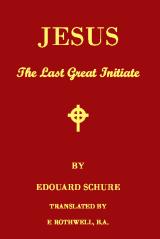
"Jesus, feeling his end near, thus explained to astonished disciples the lofty perspectives which from bygone times had formed part of the doctrine of the mysteries, but to which each religious founder has always given personal form and colour. To engrave these truths on their minds and facilitate their propagation, he summed them up in such images as were characterised by extreme boldness and incisive energy. The revealing image and speaking symbol formed the universal language of the ancient initiates. Such a language possesses a communicative virtue, a power of concentration and duration lacking in the abstract term. In using it, Jesus merely followed the example of Moses and the prophets. He knew the Idea would not immediately be understood, but he wished to impress it in letters of flame in the simple souls of his followers, leaving to succeeding ages the task of generating the powers contained in his word. Jesus feels himself one with all the prophets of the earth who had gone before, as he had done, messengers of Life and of the eternal Word. In this sentiment of unity and solidarity with immutable truth, he dared address to his afflicted disciples the proud words: "Heaven and earth shall pass away, but my word shall not pass away.”
“Jesus knew that his hour was nigh, but he did not wish to fall into
the hands of the Sanhedrim, so he withdrew to Bethany. As he had a
predilection for the Mount of Olives, he came there almost daily to
converse with his disciples. From the summit the view was
magnificent. The range of vision embraces the rugged mountains of
Judea and Moab, with their purplish-blue tints, whilst away in the
distance could be caught a glimpse of the Dead Sea, like a leaden-hued mirror from whose surface rise dense sulfurous mists. At the
foot of the mountain stretched Jerusalem, the Temple, and the citadel
of Zion towering above all other edifices. Even in these days, as
twilight descends on the dark mysterious gorges of Hinnom and
Jehoshaphat, the city of David and of the Christ, protected by the
sons of Ishmahel, rises in imposing majesty above these gloomy
valleys. Its cupolas and minarets reflect the fading light of the
heavens and seem to be ever awaiting the angels of judgment. It was
there Jesus gave the disciples his final instructions regarding the
future of the religion he had come to found, and the destiny of
mankind, thus bequeathing them his promise—at once terrestrial and
divine—intimately wedded with his esoteric teaching.
Evidently the writers of the synoptic Gospels have handed down to us
the apocalyptic sayings of Jesus amid a confusion which renders them
almost impenetrable. Their meaning only begins to become intelligible
in John's Gospel. If Jesus had really believed in his return on the
clouds, some years after his death, as is admitted according to the
naturalistic interpretation; or if he had imagined that the end of
the world, and the last judgment of men would take place in this
manner, as orthodox theology believes, he would have been a very
ordinary visionary indeed, instead of the sage initiate, the sublime
seer every word of his teaching and every action of his life proclaim
him to have been. It is evident that here, specially, his words must
be understood in their allegorical signification according to the
transcendent symbolism of the prophets. John's Gospel, the one which
has most fully handed down to us the Master's esoteric teaching,
emphasises this interpretations, so perfectly in accord as it is
with the parabolical genius of Jesus, when he relates the Master's
words: "I have yet many things to say unto you, but ye cannot bear
them now... These things have I spoken unto you in parables, but the
time cometh when I shall no more speak unto you in parables, but I
shall show you plainly of the Father.”
The solemn promise of Jesus to the apostles embraces four objects,
four increasing spheres of planetary and cosmic life: the individual
psychic life; the national life of Israel; the earthly evolution and
end of humanity as well as the divine. Let us take one by one these
four spheres through which radiates the thought of the Christ before
his martyrdom, like the setting sun, filling with its glory the whole
terrestrial atmosphere right to the zenith, before shining on other
worlds.
1. The first judgment signifies the ultimate destiny of the soul
after death. This is determined by its own inner nature and the acts
of its life. I have already expounded this doctrine, with reference
to Jesus' conversation with Nicodemus. On the Mount of Olives he says
to his disciples: "Take heed to yourselves, lest at any time your
hearts be overcharged with surfeiting, and drunkenness, and cares of
this life, and so that day come upon you unawares.” And again: "Be
ye also ready: for in such an hour as ye think not, the Son of man
cometh.”
2. The destruction of the temple and the end of Israel.”Nation shall
rise against nation... They shall deliver you up to be afflicted...
Verily I say unto you, This generation shall not pass till all these
things be fulfilled.”
3. The terrestrial aim of humanity which is not fixed at some
definite epoch, but must be reached by a graduated series of
successive realisations. This aim is the coming of the social Christ
or the divine man on earth; i.e. the organisation of Truth, Justice,
and Love in human society, and consequently, the pacification of the
nations. Isaiah had already foretold this distant epoch in a splendid
vision beginning with words: "For I know their works and their
thoughts; it shall come that I will gather all nations and tongues;
and they shall come and see my glory. And I will set a sign among
them" Etc... Etc... Jesus completing this prophecy explains to his
disciples what this sign shall be; the complete unveiling of the
mysteries or the coming of the Holy Ghost, whom he also calls the
Comforter or "the Spirit of Truth which shall lead you into all
truth.” The apostles shall have this revelation beforehand, the mass
of humanity in the course of time. But whenever it takes place in an
individual consciousness or among a group of men, it pierces through
and through. “For as the lightning cometh out of the east and shineth
even unto the west, so shall also the coming of the Son of man be.”
Thus, when the central and spiritual truth is kindled it illumines
all other truths throughout creation.
4; The last Judgment signifies the end of the cosmic evolution of
humanity, or its entrance into a definitely spiritual state. This is
what Persian Esoterism had called the victory of Ormuzd over the
Ahrimanes, or of Spirit over Matter. Hindu Esoterism named it
complete re-absorbtion of matter by Spirit, or the end of a day of
Brahma. After thousands of centuries a period must come when, through
series of births and rebirths, incarnations and regenerations, the
individuals composing a humanity shall have definitely entered the
spiritual state, or been annihilated as conscious souls by evil, i.e.
by their own passions symbolised by the fire of Gehenna and gnashing
teeth.”Then shall appear the sign of the Son of man in heaven ....
They shall send his angels with a great sound of a trumpet, and they
shall gather together his elect from the four winds.” The Son of Man,
a generic term, here signifies humanity in its perfect
representation, i.e. the small number of those who have raised
themselves to the rank of Sons of God. His sign is the Lamb and the
Cross, i.e. Love and Eternal Life. The Cloud is the image of the
Mysteries which have become translucent, as well as of the subtle
matter transfigured by the spirit, of the fluidic substance which is
no longer a dense obscure veil, but a light transparent garment of
the soul, no longer a gross obstacle, but an expression of the truth;
no longer a deceptive appearance but spiritual truth itself, the
inner world instantaneously and directly manifested. The Angels who
gather together the Elect are glorified spirits, who have themselves
sprung from humanity. The Trumpet they sound symbolises the living
word of the spirit, which lays bare the real nature of the soul, and
destroys all lying appearance of matter.
Jesus, feeling his end near, thus explained to astonished disciples
the lofty perspectives which from bygone times had formed part of the
doctrine of the mysteries, but to which each religious founder has
always given personal form and colour. To engrave these truths on
their minds and facilitate their propagation, he summed them up in
such images as were characterised by extreme boldness and incisive
energy. The revealing image and speaking symbol formed the universal
language of the ancient initiates. Such a language possesses a
communicative virtue, a power of concentration and duration lacking
in the abstract term. In using it, Jesus merely followed the example
of Moses and the prophets. He knew the Idea would not immediately be
understood, but he wished to impress it in letters of flame in the
simple souls of his followers, leaving to succeeding ages the task of
generating the powers contained in his word. Jesus feels himself one
with all the prophets of the earth who had gone before, as he had
done, messengers of Life and of the eternal Word. In this sentiment
of unity and solidarity with immutable truth, he dared address to his
afflicted disciples the proud words: "Heaven and earth shall pass
away, but my word shall not pass away.”"
Edouard Schure, Jesus: The Last Great Initiate
Publisher: Kessinger Publishing; Facsimile edition (March 1997)
Related Articles
A New Axial Age by Karen Armstrong
The Spiritual Perspective
A new and unique epoch in human knowledge is opening
A Brief History of Evolutionary Spirituality
Jesus Christ: "Heaven and earth shall pass away, but my word ...”
The Moral Implications of Spiritual Awakening
Baptism by the Holy Spirit of God Almighty
Praise for Life After Death: The Burden of Proof - 1
Praise for Life After Death: The Burden of Proof - 2
Gospel of Thomas offers the readers his secret teachings
Evolution: Comparing Darwin's theory with Vishnu's incarnations
The Foundations of Karl Rahner Chapter Nine: Eschatology
The New Humanity
The Promise of the Future
The Evolution of Enlightenment
The most profound experiences of God in human history
The future of the spiritual traditions on our planet
Awakening to Evolution by Andrew Cohen
Apokalypsis: The fulfillment of eschatological instruction by the Paraclete in the Age to Come promised by Jesus at the Last Supper
An apocalypse (Greek: apokalypsis meaning “an uncovering”) is in religious contexts knowledge or revelation, a disclosure of something hidden, “a vision of heavenly secrets that can make sense of earthly realities.” (Ehrman 2014, 59)
“An apocalypse (Ancient Greek: apokalypsis ... literally meaning "an uncovering") is a disclosure or revelation of great knowledge. In religious and occult concepts, an apocalypse usually discloses something very important that was hidden or provides what Bart Ehrman has termed, "A vision of heavenly secrets that can make sense of earthly realities". Historically, the term has a heavy religious connotation as commonly seen in the prophetic revelations of eschatology obtained through dreams or spiritual visions.” Wikipedia 2021-01-09
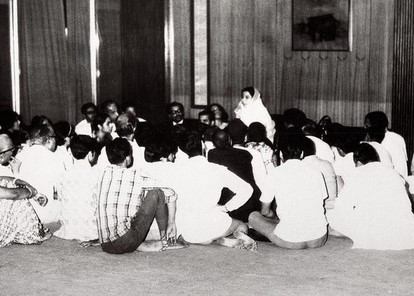
Total number of recorded talks 3058: Public Programs 1178, Pujas 651, and other (private conversations) 1249
“The Paraclete will come (15:26; 16:7, 8, 13) as Jesus has come into the world (5:43; 16:28; 18:37)... The Paraclete will take the things of Christ (the things that are mine, ek tou emou) and declare them (16:14-15). Bishop Fison describes the humility of the Spirit, 'The true Holy Spirit of God does not advertise Herself: She effaces Herself and advertises Jesus.' ...
It is by the outgoing activity of the Spirit that the divine life communicates itself in and to the creation. The Spirit is God-in-relations. The Paraclete is the divine self-expression which will be and abide with you, and be in you (14:16-17). The Spirit's work is described in terms of utterance: teach you, didasko (14:26), remind you, hypomimnesko (14:26), testify, martyro (15:26), prove wrong, elencho (16:8), guide into truth, hodego (16:13), speak, laleo (16:13, twice), declare, anangello (16:13, 14, 15). The johannine terms describe verbal actions which intend a response in others who will receive (lambano), see (theoreo), or know (ginosko) the Spirit. Such speech-terms link the Spirit with the divine Word. The Spirit's initiatives imply God's personal engagement with humanity. The Spirit comes to be with others; the teaching Spirit implies a community of learners; forgetful persons need a prompter to remind them; one testifies expecting heed to be paid; one speaks and declares in order to be heard. The articulate Spirit is the correlative of the listening, Spirit-informed community.
The final Paraclete passage closes with a threefold repetition of the verb she will declare (anangello), 16:13-15. The Spirit will declare the things that are to come (v.13), and she will declare what is Christ's (vv. 14, 15). The things of Christ are a message that must be heralded...
The intention of the Spirit of truth is the restoration of an alienated, deceived humanity... The teaching role of the Paraclete tends to be remembered as a major emphasis of the Farewell Discourses, yet only 14:26 says She will teach you all things. (Teaching is, however, implied when 16:13-15 says that the Spirit will guide you into all truth, and will speak and declare.) Franz Mussner remarks that the word used in 14:26, didaskein, "means literally 'teach, instruct,' but in John it nearly always means to reveal.” (Stevick 2011, 292-7)
The Holy Spirit as feminine: Early Christian testimonies and their interpretation,
Johannes van Oort, Radboud University, Nijmegen, The Netherlands
Department of Church History and Church Polity, Faculty of Theology, University of Pretoria, South Africa
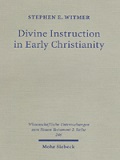
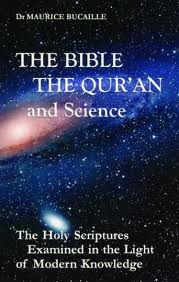
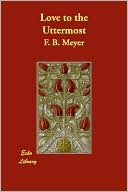
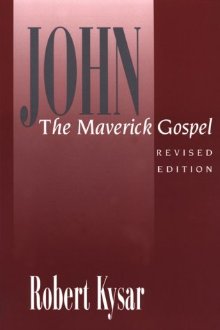
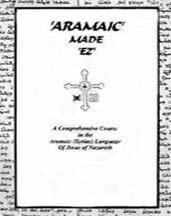

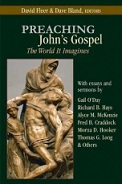
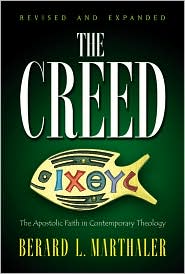
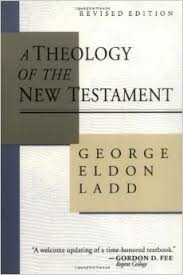
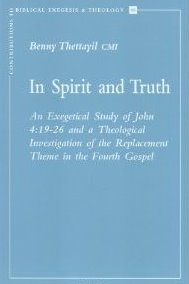

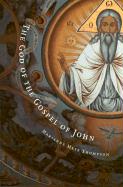
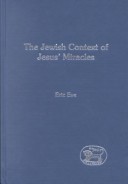
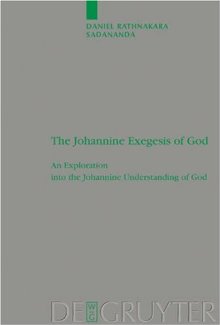

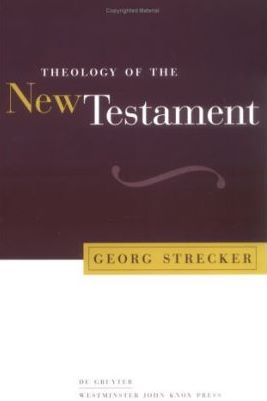
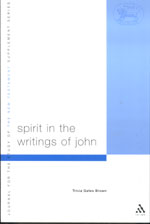
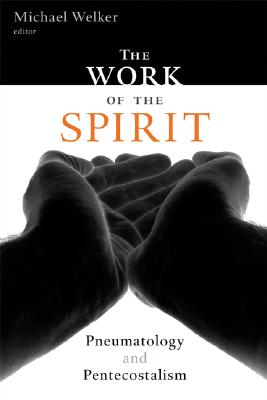
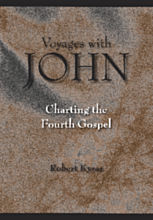
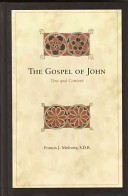
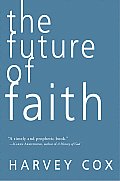
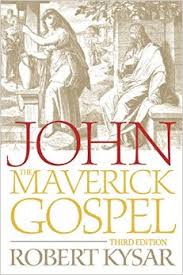
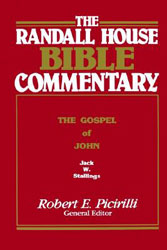
 “The teaching of the Paraclete, as the continuation of Jesus' teaching, must also be understood as the fulfillment of the promise of eschatological divine instruction.”
“The teaching of the Paraclete, as the continuation of Jesus' teaching, must also be understood as the fulfillment of the promise of eschatological divine instruction.”Stephen E. Witmer, Divine instruction in Early Christianity
“Jesus therefore predicts that God will later send a human being to Earth to take up the role defined by John .i.e. to be a prophet who hears God's words and repeats his message to man.”
M. Bucaille, The Bible, the Qur'n, and Science
“And when Jesus foreannounced another Comforter, He must have intended a Person as distinct and helpful as He had been.”
F. B. Meyer, Love to the Utmost
“The Paraclete has a twofold function: to communicate Christ to believers and, to put the world on trial.”
Robert Kysar, John The Meverick Gospel
“But She—the Spirit, the Paraclete...—will teach you everything.”
Danny Mahar, Aramaic Made EZ)
“Grammatical nonsense but evidence of the theological desire to defeminize the Divine.”
Lucy Reid, She Changes Everything
“The functions of the Paraclete spelled out in verses 13-15... are all acts of open and bold speaking in the highest degree.”
David Fleer, Preaching John's Gospel
“The reaction of the world to the Paraclete will be much the same as the world's reaction was to Jesus.”
Berard L. Marthaler, The Creed: The Apostolic Faith in Contemporary Theology
Bultmann calls the “coming of the Redeemer an 'eschatological event,' 'the turning-point of the ages.”
G. Ladd, A Theology of the New Testament
“The Paraclete equated with the Holy Spirit, is the only mediator of the word of the exalted Christ.”
Benny Thettayil, In Spirit and Truth
“The divine Paraclete, and no lessor agency, must show the world how wrong it was about him who was in the right.”
Daniel B. Stevick , Jesus and His Own: A Commentary on John 13-17
Stephen Smalley asserts that “The Spirit-Paraclete ... in John's Gospel is understood as personal, indeed, as a person.”
Marianne Thompson, The God of the Gospel of John
“The Messiah will come and the great age of salvation will dawn (for the pious).”
Eric Eve, The Jewish context of Jesus' Miracles
“The remembrance is to relive and re-enact the Christ event, to bring about new eschatological decision in time and space.”
Daniel Rathnakara Sadananda, The Johannine Exegesis of God
“The Spirit acts in such an international situation as the revealer of 'judgment' on the powers that rule the world.”
Michael Welker, God the Spirit
The Paraclete's “Appearance means that sin, righteousness, and judgment will be revealed.”
Georg Strecker, Theology of the New Testament
“While the Spirit-Paraclete is the true broker, the brokers they rely on are impostors.”
T. G. Brown, Spirit in the writings of John
“The pneumatological activity ... of the Paraclete ... may most helpfully be considered in terms of the salvific working of the hidden Spirit.”
Michael Welker, The work of the Spirit
“The pneuma is the peculiar power by which the word becomes the words of eternal life.”
Robert Kysar, Voyages with John
“The gift of peace, therefore, is intimately associated with the gift of the Spirit-Paraclete.”
Francis J. Moloney, The Gospel of John
“This utopian hope, even when modestly expressed, links Jesus and the prophets to a much wider history of human longing.”
Harvey Cox, The Future of Faith
“Because of the presence of the Paraclete in the life of the believer, the blessings of the end-times—the eschaton—are already present.”
Robert Kysar, John
“They are going, by the Holy Spirit's power, to be part of the greatest miracle of all, bringing men to salvation.”
R. Picirilli, The Randall House Bible Commentary
“The Kingdom of God stands as a comprehensive term for all that the messianic salvation included... is something to be sought here and now (Mt. 6:33) and to be received as children receive a gift (Mk. 10:15 = Lk. 18:16-17).”
G. Ladd, A Theology of the New Testament
Disclaimer: Our material may be copied, printed and distributed by referring to this site. This site also contains copyrighted material the use of which has not always been specifically authorized by the copyright owner. We are making such material available to our readers under the education and research provisions of "fair use" in an effort to advance freedom of inquiry for a better understanding of religious, spiritual and inter-faith issues. The material on this site is distributed without profit. If you wish to use copyrighted material for purposes other than “fair use” you must request permission from the copyright owner.